
IN CONVERSATION WITH SOPHIE THATCHER
Sophie Thatcher, best known for her role in the critically acclaimed series…
Photography by Jason Renaud; Interview by Louise Garier
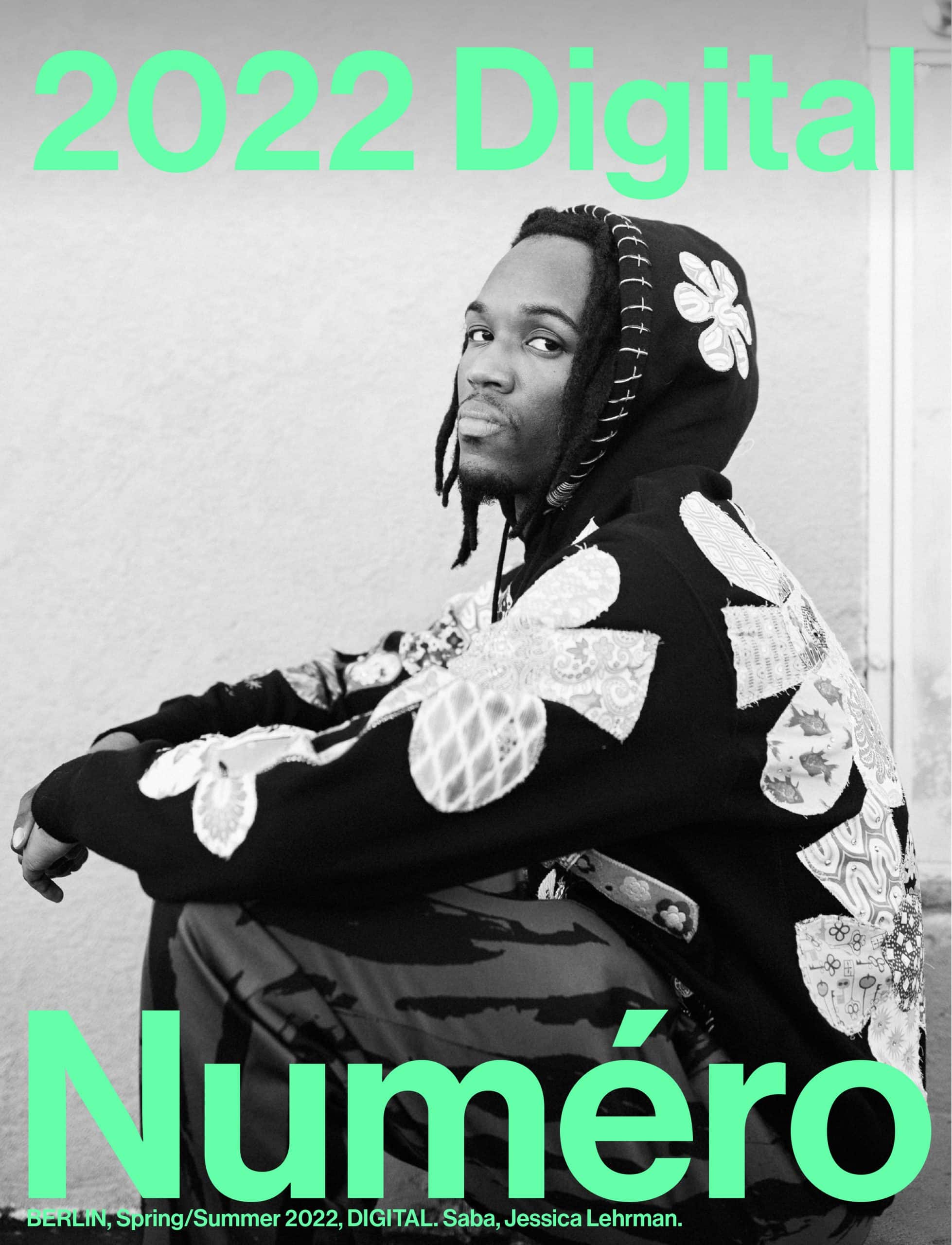
In a world that constantly puts everything into boxes, that talks about freedom but at the same time restricts if not even steals it from us, we need artists that go against it – today maybe more than ever before. But opinions that can destroy careers from one day to the other and financial pressure from a growing, almost threatening competition don’t really help to make a change. It’s no surprise that in contemporary artistry “it has become way too easy to go with what is popular”: Chicago- born rapper and producer Tahj Malik Chandler alias Saba is one of the few artists which gives us hope that there is more out there. Once discovered, I promise, you just cannot stop following his work. Everything he puts out into this world touches you with such pure authenticity.
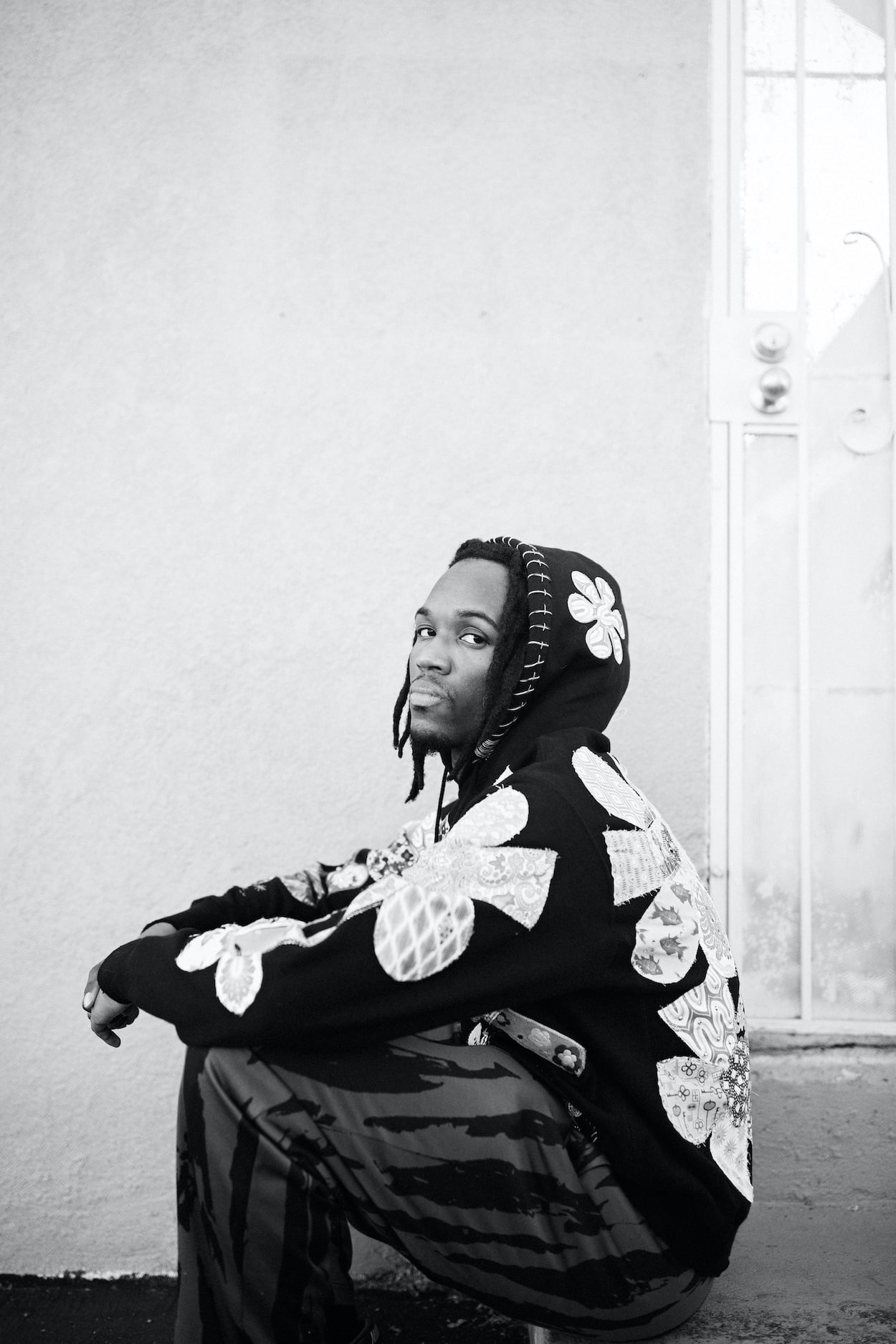
I am pretty excellent. How about yourself?
It was great, real smooth. That is the best you can ask for as an artist I feel like.
For me, Chicago feels like home. I was raised by my grandparents. You know, I’ve done a lot of traveling now because of my career, but Chicago still feels like a unique experience. There’s so much unspoken dialog in Chicago. Talking about empathy, connecting and relating with someone, I think the city is one of the places where it’s almost assumed that every person that’s from Chicago has had some type of similar experience. So for me, growing up there, I felt understood. Even early in my career when putting out music and telling stories that are really specific to my upbringing and experience, I felt understood by the city of Chicago because it’s a place where you can be so many things, you can be so many versions of yourself. It kind of enforces that you can just develop new sets of skills, things that you probably never saw yourself doing, having to communicate with people from different walks of life. Chicago is a really diverse and also segregated place. It’s one of the most beautiful but also most ugliest places and I think that type of juxtaposition really gives you a complete people. The balance that you grow up with is just different. But I mean, I’m biased because I’m from there ( laughs) so it’s hard to imagine it any other way.
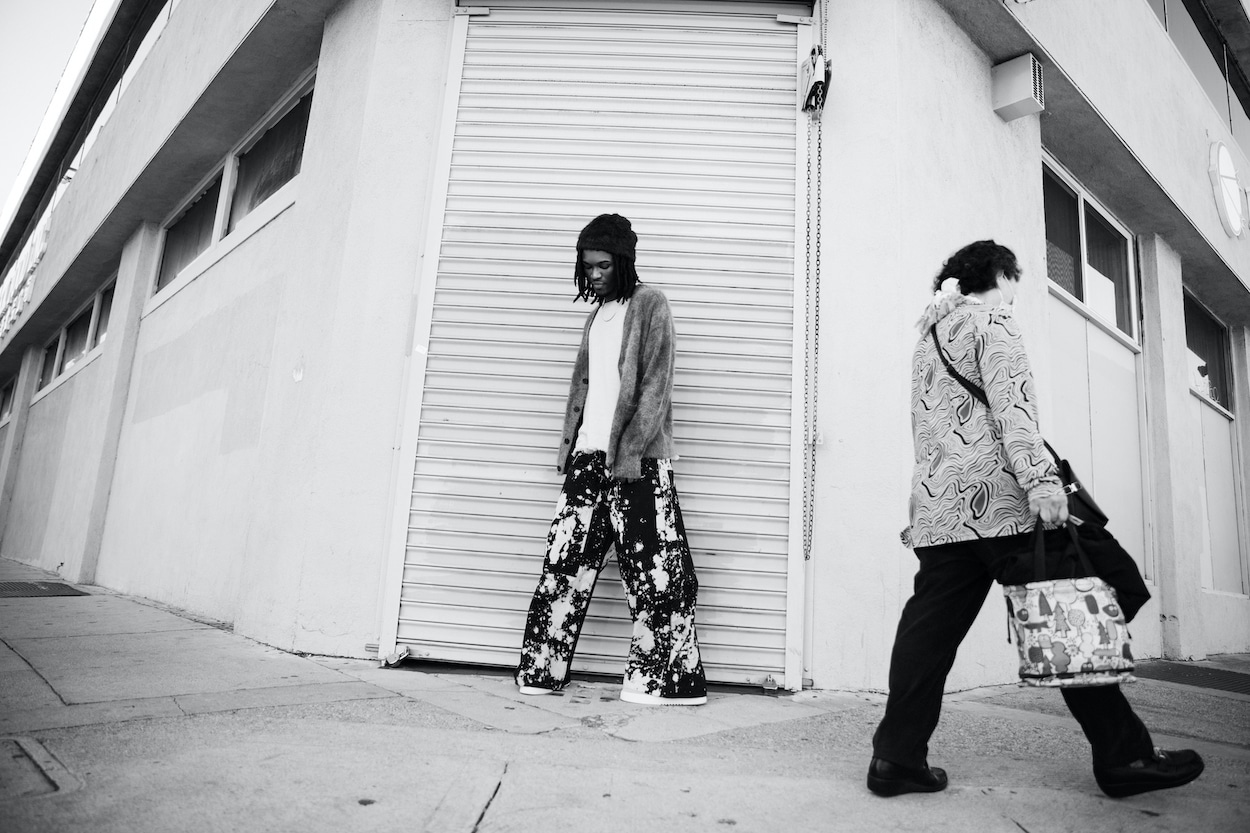
When I think of home and the concept of home, L.A. is where I pay to live but to me, home is so much more than a transactional definition. That’s what my experience in L.A. is right now, I’m here for mostly career purposes and the weather etc. But mostly really for work. I’m coming here for something. I pay however much a month and then I get to live, right? But to me, my experience in Chicago was way different: over there, I know that I’m home because regardless of whether I book a hotel or not, I know I’ll have somewhere to stay. I know I have a community, I got people, I got family and to me that feels like home, it is this idea of safetyness. That, to me, makes Chicago always at the top of feeling at home.
It’s hard to quantify it as the biggest lesson but I think one of the probably most important ones that I experienced in my youth in Chicago was not really being open minded. I think part of being a teenager is being close minded, just like ‘these are the things that I like and I hate everything else’. I think that’s part of almost everybody’s experience as a teenager. For me also being like that, I think when I challenged myself or when I was challenged by people around me to break that down, I found myself enjoying my life a lot more. The type of community that was in Chicago really encouraged that and challenged all of these ideas of what was socially acceptable or normal, there were so many just following their own intuitions and beliefs. That is really an encouraging environment to be in because you start challenging and pushing yourself to do new things, things that maybe weren’t necessarily cool. Authenticity is something that was really unique to my teenage experience in Chicago, there were so many people around me that were just 18 and fully set on following their dreams. That type of energy is contagious almost, you know?
“Before the world gives you its opinion on you, you are just so much more free in your thinking and your soul, you’re so much more brave before you are ever shot down by anybody.”
The most important thing that I do as an artist, maybe not even as artist but just throughout my day is I try to check in with the younger version of myself. Before the world gives you its opinion on you, you are just so much more free in your thinking and your soul, you’re so much more brave before you are ever shot down by anybody. You got an understanding of yourself that nobody else has. It is the freedom that comes with youth. You get to wear the purple shoes with your Barney jacket, just something that you would never recreate as an adult because it’s too embarrassing or it is not socially acceptable. The young version of you is so artistic, creative and brave. Throughout my day when I found myself overthinking or asking myself too many questions, a lot of times it is because I’m thinking about how other people feel about something but the young version of myself didn’t care. Nobody could tell me that something I liked wasn’t cool. And I think that’s one of the most important things that artists and creatives can do because: it’s so easy to just go with what’s popular and normal because part of artistry is still career, we are seeking success. We are trying to feed ourselves and our families, so a lot of artists end up doing what they think will be successful versus what they want to use as their form of self expression. I think the young version of me had that in check.
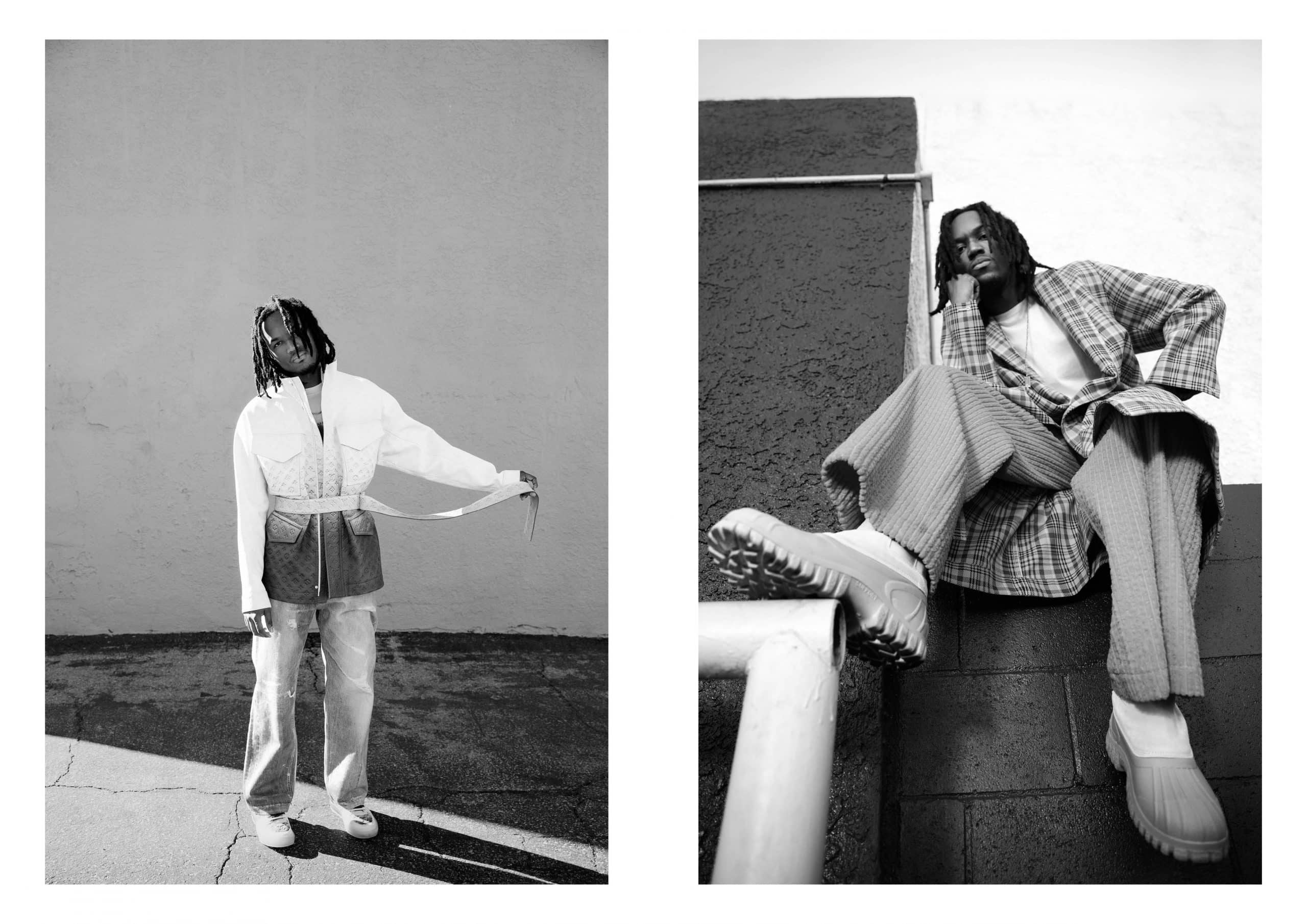
I think the first time I performed with my father, like at an actual show, was in 2017. We played a concert in Chicago at House of Blues. It was an annual concert that we did before the pandemic as a fund raiser in memory of my cousin John Walt and I brought my dad out to do GPS from “Bucket list”. I figured it would be appropriate to have him come out and perform it.
Yes, I think so, but more importantly, he was influential to the development of my mind. I think just early on, watching my dad really pursue music and follow his own dreams just kind of gave me the confidence and encouragement to do it myself. Just to see somebody go for it, you know?! But he was definitely influential to my music too, some of my chord progressions I just learned from listening to his music and some of my hooks are inspired by his way of layering.
To me, the easy part is the actual creation. A lot of times I’m not even thinking about how personal what I’m sharing is, it is just what was on my mind. So I’m writing it down, then I’m recording it and work on a song. That is the part that is really fun. The actual releasing of the music is where I tend to be a lot more hard on myself in terms of what I’m actually sharing, because sometimes, when I write something not realizing how personal it is, means that it is just a free ride. I’m not really thinking about what the words mean. What makes it ok putting it out then is knowing regardless of what is popular, I know that when I’m honest in my music, somebody will latch onto that for whatever experience they’re going through at the moment so it can help them too. I feel like by just doing that, I make some lifelong fans, people who will support me until I’m not on this earth anymore. That’s a really special thing, it is unique to being authentic and being honest in music, being personal with what you share. So to me, as scary as it is sometimes to say things that are so personal, I can’t really imagine it any other way. It is too important to me to just be me.
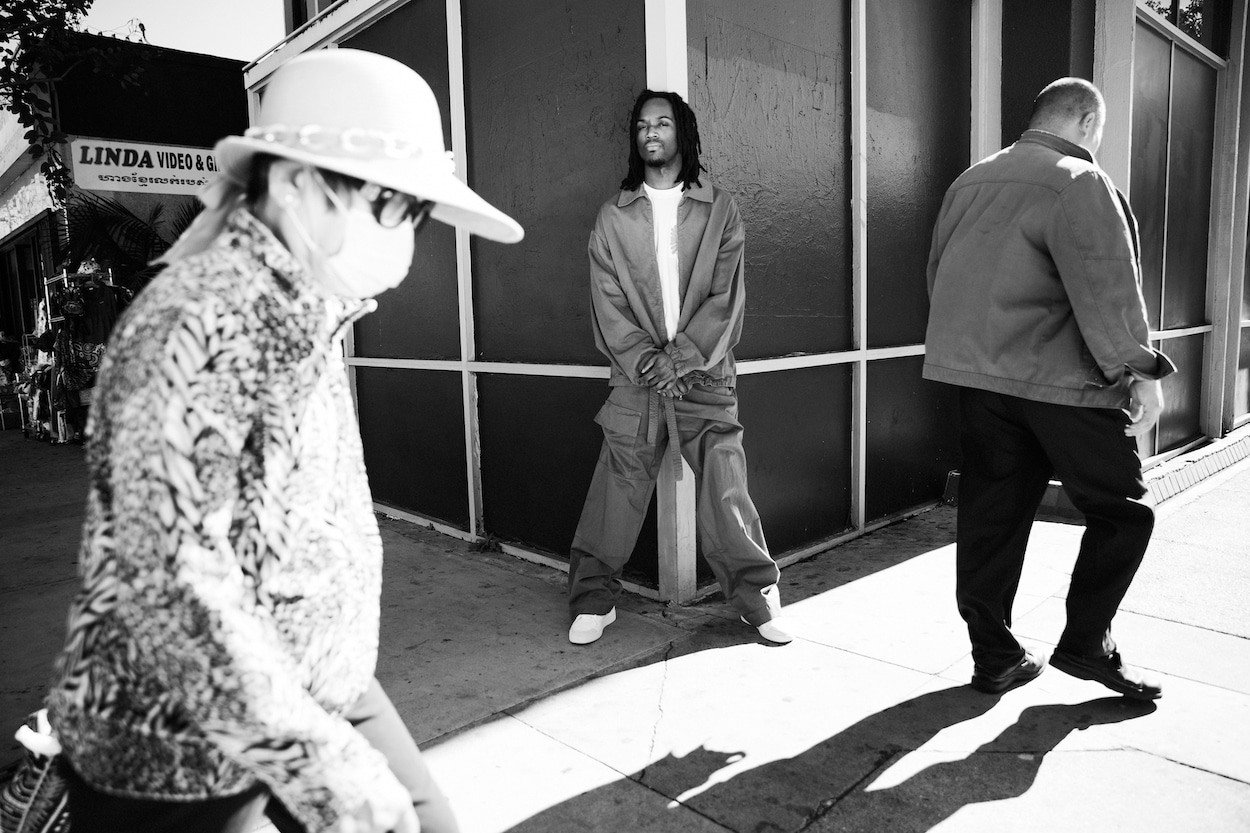
To me, it’s just context, you always have visual context for lyrics, for what I’m describing in songs. A lot of it is storytelling, specific to a certain time or place. Sometimes it’s like you leave up so much of the work to the imagination of the listener, but so many of my listeners have never been to Chicago and seen the street that I’m describing or how it was growing up there. So to me, it was really important to not be too literal with what I’m saying on the album. I wanted offer a visual, to give that same type of context where you can see the stories play out, whilst still be open ended to your own interpretation. Movies are such a tangible medium, it’s like live music. With music as a medium, I do feel limited sometimes with what I can or can’t say. With a visual, I don’t have to say anything, you can just look at it and see everything.
Well, we had a lot of help (laughs), a lot of people did things out of pure support, love and belief in the project. A lot of people just wanted to be a part of it. But yeah, to be very honest, I think films are just really fucking expensive (laughs). So probably if I had to just say transparently what the biggest challenge was, it would be figuring out how to afford to actually incorporate all of these ideas that me and C.T. Robert, the Director, and the team had to do the short movie. Thankfully we had resources and a lot of people that were willing to help, otherwise it would have been impossible.
I’ll say for context, that that type of challenge isn’t only a challenge because I’m independent, people on majors go through similar experiences. They might have an idea of something that they want to do, but they still got to get somebody to sign off on paying for it, you still have to get the resources and support. To me, I wouldn’t say that I would consider giving up the freedom of independence, but I am open to partnering and still doing things our way with whatever company. I’m not close minded to it, I never want to say never. But right now this is just what has worked for me and I’m happy with it. I definitely want to continue to grow, I don’t want to be pigeonholed into independence if it wasn’t working for me though. So whatever works best for me, I’ll be doing.
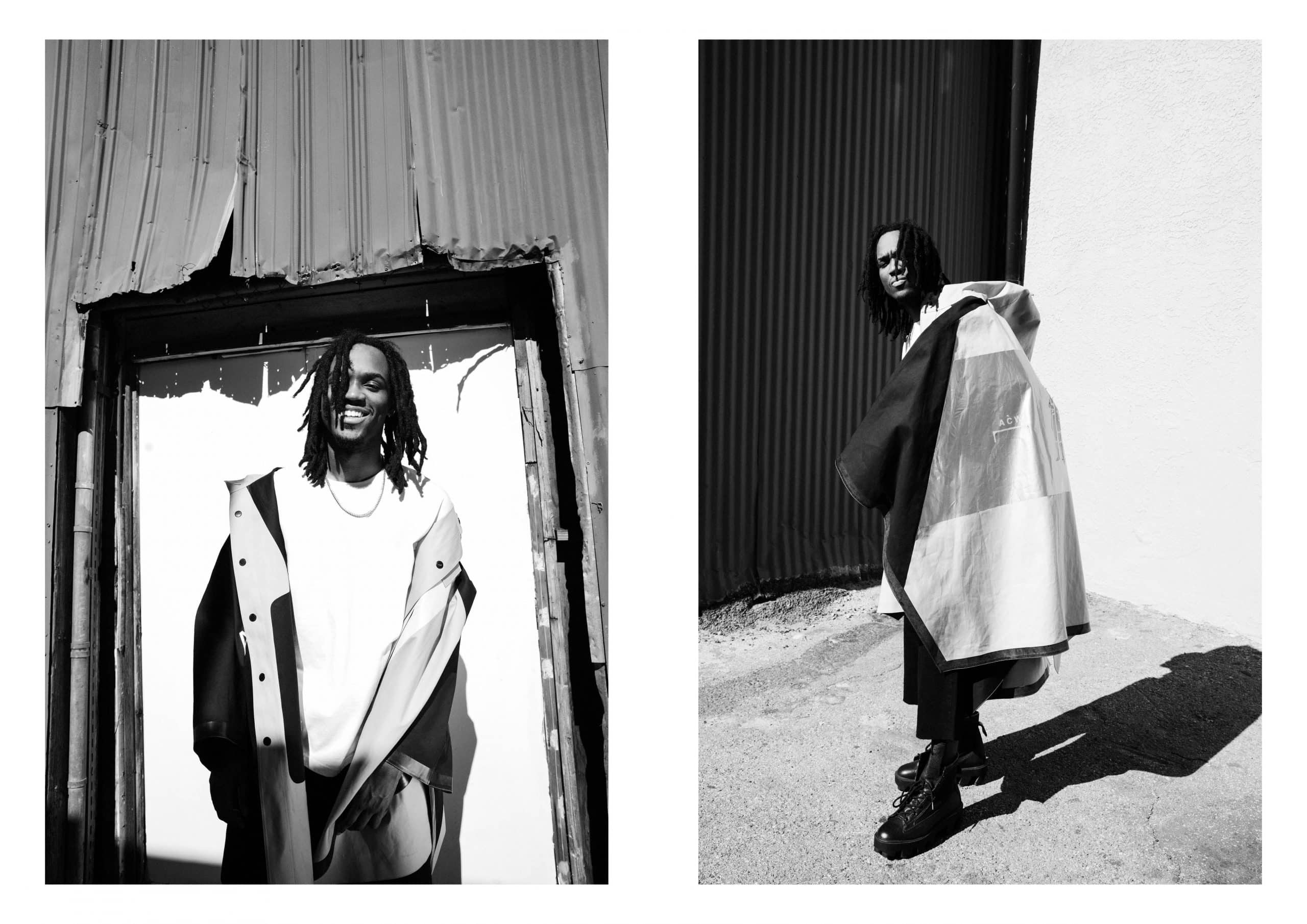
For me, I don’t necessarily consider empathy a part of everyone’s artistic mission. I don’t feel artists should be responsible to empathize. I would like to believe that every human has a redeemable level of empathy. But a lot of times as artists, you’re so involved in your own world. It makes it hard to come down and to really understand the people that are listening to you. I feel like I’ve always been a super empathetic person, so it makes it easier when I’m writing to understand my music from a fan’s perspective. I’m able to write from my perspective while using a language and words that create a story you can empathize with, regardless of whether you lived the exact life that I lived in Miami or not, but because it’s so human. What has always been important to me is incorporating that I don’t want the pedestal of artistry – I want to be big and successful as an artist, but I want to do it being myself. And with that comes a level of understanding from my listeners, they know regardless of what they’re getting, it would be me at the end of the day.
“I believe that to nurture your own growth, to take as much time as you need to really be honest and truthful to what you want to make is the most important thing you can do as an artist in life. That’s what I think will really push the industry forward.”
For me it is partially just nurturing growth. I think the more you nurture growth, the easier it is to remain authentic. Some people, like some fans, for instance, want a specific sound. They like a song you did six years ago, and that’s the song that they want you to continue to make. Some fans heard the same song six years ago and they hear you keep making that and wonder why you aren’t making something new. So I think if you were creating from the point of trying to please people, you’ll always be stuck at one level because it’s impossible to please everybody. I believe that to nurture your own growth, to take as much time as you need to really be honest and truthful to what you want to make is the most important thing you can do as an artist in life. That’s what I think will really push the industry forward. Like you just said – it’s not like the industry is really nurturing the idea of growth but I think fans do it and artists too, and a lot of niche communities within the industry. I believe it’s just a matter of mentally challenging yourself and staying grounded in truth and what you represent, not to say you can’t change, we are humans, I feel like every two years, I sound different (laughs). Some people would hear that and it’ll be a negative thing to them, but me, I love that about my music, I can listen to it and hear eras. I could hear my voice doing something specific and could tell I recorded that in 2016. The level of self-awareness that is required to be creative gets intense, but it deserves to be intense because creativity is really just self-expression. So you should be aware, nobody has the answers. It’s not like we need you to be perfect and really in tune and you can never contradict. I don’t think that is what people are asking for, they are asking for something that is real. And to me, that is exactly the way to do it, to keep nurturing your own growth.
Sadé would be a dream. And do you remember Child Rebel Soldier? It was Kanye West, Lupe Fiasco and Pharrell Williams. And they put out one or two songs. I would have them perform the two songs. And then, let me think about this. Maybe we would do something where we had A Tribe Called Quest performing with some type of crazy band like Roy Ayers or Earth Wind & Fire, somebody like playing for Tribe. Yeah, that’d be interesting. I needed more time to work out the kings of what they’re supposed to be and the specific bands but that would be the idea behind. I don’t want to take up too much time brainstorming (laughs).
In the United Center in Chicago.
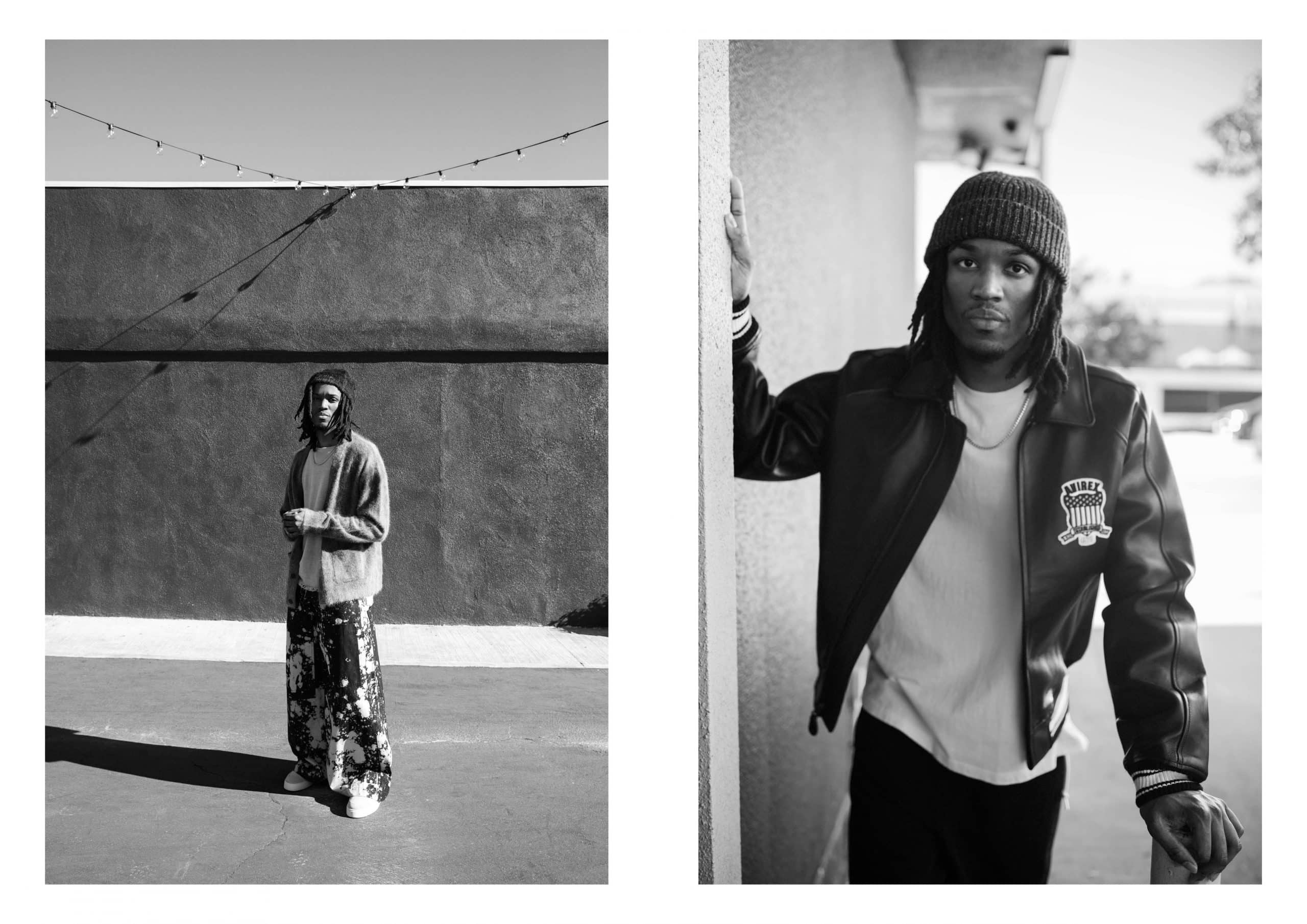
Let me go through my phone because honestly I’ve been listening to the same songs for most of my life (laughs). I would say first, it would have to be Notorious Thugs by Notorious B.I.G. and Bone Thugs N Harmony. That was a really influential song that made me want to become a rapper. Then maybe Runnin’ by The Pharcyde because that I feel taught me a little about harmony and layering.
Yeah, you know, I really can’t wait to get back into the swing of touring and playing shows. In artistry there has been a lot of downtime which also made me more aware of what I want to do. There’s really no limit on what I see this year really being able to be.
Yes, it is scheduled for September 12th. I’ve been to Berlin a few times. I actually really like Berlin.
It was just always a good experience. I’ve only been there for shows, never to like kick it, but everybody was just really receptive. It was always a good energy and it felt just like a cool place. Also, I randomly have family in Germany too (laughs). I got a cousin out there, he lives in a smaller town, I could not tell you the name now. So it is always nice to play shows in Germany because I get to see my cousin.

Sophie Thatcher, best known for her role in the critically acclaimed series…
Photography by Jason Renaud; Interview by Louise Garier

"We have to create something that has a purpose and is useful. And not forced by the…
Interview Carolin Desiree Becker

Supporting Sydney’s cultural scene: This month’s collaboration reminds us of happy…
Interview by Sina Braetz